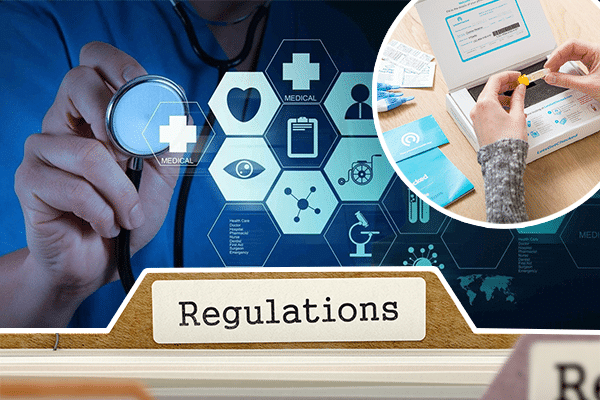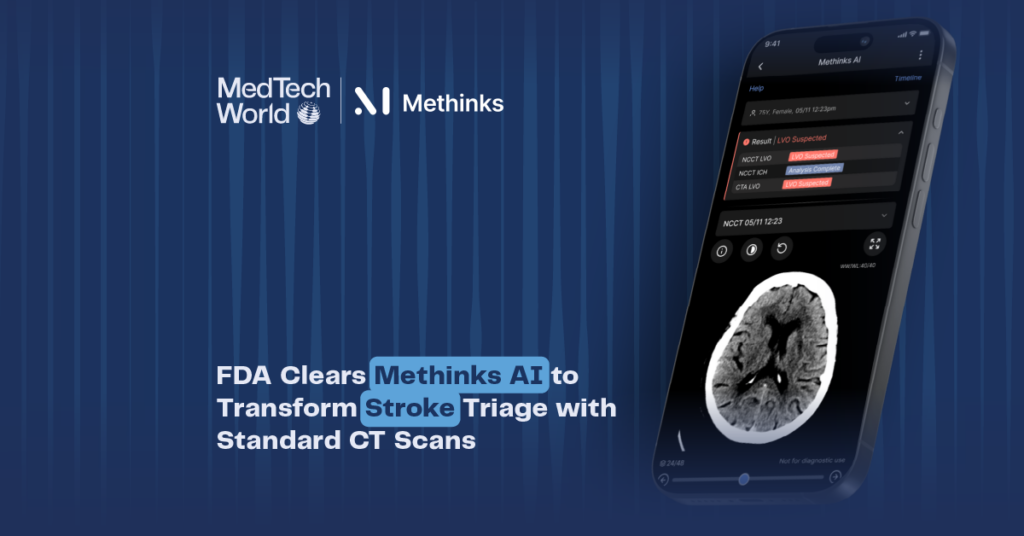
Michael Joe Cini
17th May 2021
Safety of at-home testing kits: ‘all eyes are on you regulators’
At-home testing. Another part of the puzzle, but regulators need to step up their game.
Words by Dr. Ryan Grech and Dr. Dylan Attard, Clinical & Health Tech Advisors for MedTech World and two of the co-founders of Digital Health Malta.
In the previous article, Dr. Ryan Grech and Dr. Dylan Attard discussed the 5 levels of automation in medicine.
We know, we’ve said a couple of times that COVID has made digital health mainstream. It pushed teleconsultations, telemonitoring and it showed that AI is extremely useful at crunching big data. It showed us that simple chatbots can be extremely efficient at answering basic questions and can triage individuals. Another area that we think has been profoundly affected and expect changes in and also perhaps less talked about is at-home testing. Before the pandemic, there were several companies already dipping their toes in this area, for example, at-home blood letting kits. If we’re being truthful at home testing products have existed for decades albeit perhaps simpler in what they were testing, just look at the urine sampling kits or pregnancy tests. The at-home COVID tests, however, might have highlighted that more complex testing kits can be mass-produced for home use and can have a real impact on healthcare.
So really and truly what we need is recognition by healthcare systems after these kits have undergone rigorous testing and show that they are at least comparable to the traditional way of testing. And some of these private enterprises that are ever-increasing as at-home testing becomes mainstream, are complementing their testing kits with a next-level user experience that enables the patient to track his test and get his results instantly on his smartphone with an explanation of what they might mean (although obviously, they all put out a disclaimer that you need to consult your doctor).
From targetting food allergies to genetic sequencing or BRCA-focused genetic testing to finding your genetic ancestry there is something for everyone. There are a lot of products available out there that target different parts of your health and the acceptance of COVID testing at home may push health regulators to take these more seriously and not just dismiss them as voodoo. The pandemic has led to a unique situation where certain lab tests were preferentially carried at home to avoid exposure to the infection. And this is where things will be getting interesting. More startups are eyeing the testing market. Be it robots taking your blood or contactless measurements (perhaps not soon) and obviously, at-home testing. Empowering patients is key and allowing at-home testing is one of the pieces. For example, the UK are trialling at-home cervical smear testing which many believe will result in a huge uptake and overall increase in testing as women that may have been embarrassed to go forward before and miss their screening now have an alternative.
Whilst we appreciate that some companies might be less reputable than others and as such their tests may not be reliable at all, it’s up to the health regulators to tell us which are to be trusted and which are not. And if these products come with a seal of approval from the FDA or MHRA or the EMA, then patients will be assured that what they’re using is certified whilst it also offers reassurance to the healthcare professional that the test John used at home is reliable and trustworthy and therefore it is safe to act on that result. We still believe that any test should be interpreted by your doctor.
So yes, at-home laboratory testing is great given the right conditions. It’s private and convenient. You can be offered an incredible user experience and you can still dial for your doctor’s interpretation particularly if it’s abnormal. Ultimately (provided that these tests are at least as sensitive/specific), it would also decrease the burden from secondary care institutions. And the way we see it, for obvious reasons is that medical professionals are sceptical of this is a huge barrier to further proliferation. An interesting article on TIME highlights that most of these tests do not require FDA approval for example in the US.
So all eyes are on you regulators. It is up to you to make this a safe space and give the level of trust doctors need to accept these in daily use.
Med-Tech World: 18th-19th November 2021
The Med-Tech World conference, which follows a successful digital event in 2020, will run from 18th-19th November 2021 and will highlight innovations and developments in digital health across the globe. With so many countries realising the potential for exponential growth, Med-Tech World will address the opportunities and challenges driving this multi-million forum – embracing the potential for technological innovation to change the face of medicine in this global sector. Register your interest here!




